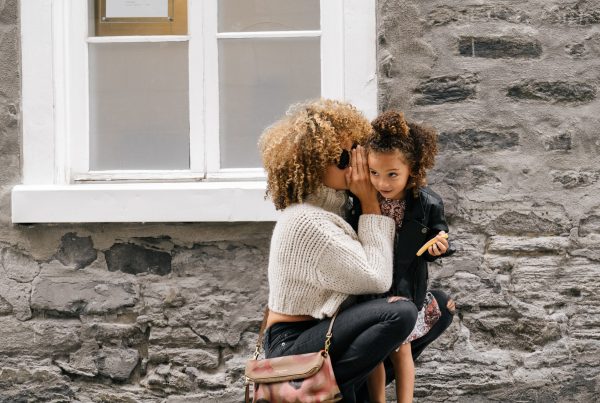
Saying goodbye to the child you’ve been caring for is one of the most heart-wrenching times as a foster parent. Every foster parent knows to prepare for this time, but that doesn’t make the reality easy or the pain less.
As you prepare for them to make this transition well, it can be overwhelming to know what or how to do it. What are the right words to say? How do I help them navigate their feelings?
And then, if there are other children in the house who are staying—whether they are biological, adopted, or have a different case in foster care—they, too, have to navigate the hard goodbye.
So many hearts to care for, not to mention, your own.
Jenn has some incredible insight and practical tools to guide us towards these hard goodbyes with honor and intentionality.
HERE ARE MY 3 TAKEAWAYS FROM OUR CONVERSATION:
1. Sit with your children in their feelings instead of rushing to fix them.
As natural protectors of our children, we don’t want them to feel hurt or sad. We want to buffer against the stress for the sake of their emotional well-being. In doing that, though, we don’t allow them to process all that is happening inside them. They are left to figure that all out on their own, and it often comes out sideways in more destructive behavior. In our attempt to fix, we quickly move past real thoughts and emotions. Instead of running from the loss and grief as our children think about leaving our home, Jenn gave us powerful tools to engage in the hard with them. Print pictures of your family, their biological family, the judge, and their caseworker to talk through this transition. Create a photo book to look back on the memories you’ve shared. Laugh and cry together. When you model your grief, children know that you are a safe person to be honest with.
“Validate what they are feeling. Don’t try to take it away. Sometimes, we want our kids to feel okay, so we want to fix the feelings that feel yucky.”
2. Be clear and honest in what you share with your children even when it’s hard.
This point has been huge for me in all areas of my life. I’m learning that “clear is kind.” Jenn pointed out that when we aren’t clear and instead use abstract language, we could actually be creating more anxiety around reunification. We’re asking our children to live in more unknown. I think it’s important to say here too, that we don’t always have the answers. We might not know clear timelines for transition dates, or we might not know if we’ll see them again after reunification. “I don’t know” is an okay answer if it’s the truthful answer. We can’t offer reassurance if we don’t know, but we can always sit in the tension with them. Jenn shared that a helpful exercise when there is a lot of unknown is to create a “wishing tree.” Write down all of the things the child wishes would happen on a tree you’ve drawn so that you both have a space to talk about your fears and anxieties. Use play through dolls to act out what the transition will look like from their point of view. Be in it together. Children need to know that they aren’t alone in the pain they experience.
“You want to be able to help them work through their feelings. If you’re talking in vague ways, you are not allowing them to experience the feelings they need to experience.”
3. It’s okay and normal to feel hesitant about reunification.
Not only do the children in your home need space to experience all of their feelings about the reunification, you, foster parent, do too. Allow yourself to feel and not rush through it. And know that it won’t feel all good. You have poured out your love and energy, and there is no timeline that you have to get over feeling grief. Use a journey to process. Be engaged with others who can hold your burdens with you. The reunification process will likely have bumps and turns, and there will be parts about it that make you uncomfortable. That is normal. Though there can be beauty in reunification, there is also still the reality that the child you cared for came to you because of brokenness. God loves you, foster parent, and you have to give yourself an abundance of grace, just as you give that same grace to your children.
“You will always feel nervous and stressed about whether it’s safe for a child to go home. Always. And that’s okay. There has been history that has given you cause to feel that way.”
RESOURCES FROM TODAY’S SHOW

Meet Our Guest
Get encouragement and updates in your inbox.
Be the first to know about new episodes, posts, resources, and stay in the loop about what’s coming up.
Other Episodes You Might Enjoy:









